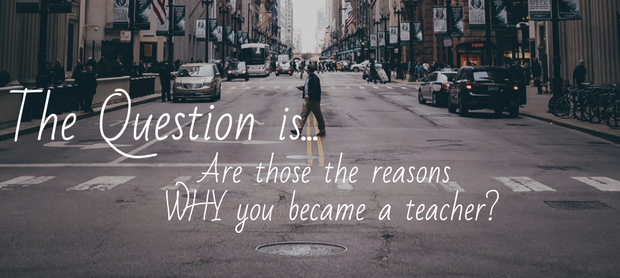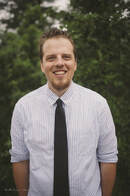Menu
It's time to chase Innovation instead of reacting to the status quo.
-Taylor Williams
|
What do you see yourself doing in 5 years? What will your job be in 6 months? What are you going to be eating for dinner tonight? When you think about vision-casting, are you considering the potential of what could be or are you letting the pessimistic voice in your head hold you back? Writer Seth Goodin talks in great deal in his book Lynchpin about our "lizard brain". This is the part of the brian that brings that "Can't Do" attitutde to our ideas. We may be really excited about the potential of a new idea, tool or strategy, but our lizard braing comes in and brings out all of the reasons why it wouldn't work. The best vision of the lizard that I have is Debbie Downer from Saturday Night Live. Excitement and passion can be born out of an idea, but when the lizard brain, or the downer of the group get a hold if it, the adrenaline wears off and the negative pieces pull the optimism out of the room. Like an air mattress with a tiny hole, slowly lowering it's occupant to the floor, the vision slinks away. Yet as a Catalyst, we must be more than this blah feeling that robs us of the great ideas. As a catalyst, a linchpin or any other illustration there needs to be a means of seeing what could come beyond the struggle. Erwin McManus spoke in one of his sermons to "Lean into the fear". When you are vision-casting for your group, school, department, or self, push your ideas beyond the comfortable. The only way to get stronger is to push your muscles as hard as they can go, so that tomorrow they can go farther. To effectively Vision-cast there are 3 main pillars (for now) that you need to focus on: 1. What do you do really well? 2. What do you suck at? 3. Where do you want to be? Vision-Casting can be focused on where you want to be, but if you don't knowwhat you are good at, you can get lost really quickly. What do you do really well? The key is being honest. What are you actually REALLY good at. What does your people thrive in. What gets them excited to the point where they can self monitor and grow independently? What do you suck at? Writing what are you bad at doesn't get the point across. We have a predisposition to always try to make ourselves in the best light. Our defensive mindset moves us in a way to find the good that we do. The truth is we all suck at something, the sooner we are honest about it the quicker you can innovate and get excited about what changes can come! Where do you want to be? If there wasn't a constraint, a money issue, a personnel issue, what would you want to do! You never will know unless you ask the question. Our vision needs to be something that is out of our grasp so that we never stop reaching for it. Don't vision-cast for next week...cast for what isn't quite yet. Change the world by being a pioneer, not a cog in the machine. I will be presenting at TCEA on being a #Catalyst, at TCEA in February. Keep an eye out on twitter (Follow @taylorhwilliams) for more information.
0 Comments
There is a reason that this is one of the top 10 most watched TED talks of all time. Sinek brings to the light something so simple, yet something that can be so difficult at the same time. Think about your classroom. Your standards, objectives, lesson plans and resources (or lack there of). The goal is to teach these students, show mastery of the standards and in most cases, prepare your students for the state standardized test that is coming. My question, or really THE question of this post is... Are those the reasons WHY you became a teacher? My story is a round about way of coming into education. My plan was to work in full time ministry, teaching and pastoring. I really enjoyed working with the local kids, planning events, and getting my first real "classroom" experience with a crowd that chose to show up, rather than being forced. And yet I digress... I am sharing my HOW to you.
As a youth pastor, my why was simply love others. Be the love in the community that the students hadn't experienced before. The love that was taught through the Bible and experienced in many different Hows. As life (and the Lord) works though, this was not my ending point of my career. Quickly, with a new wife in tow, we moved to Hong Kong to become teachers at a Christian school. My beautiful bride, the experienced SpED teacher and myself the ultra green "teacher". Stakes were higher, and I think my Why shifted to a simple why not. Adventure, travel, and risk were all on the table, so simply "why not" became my why. Low and behold, events and opportunities arise and years later I am shifted out of the classroom to my current career path. As I have grown as an educator, innovator, speaker, and writer, I believe that my why has also grown with me. Consider this... When you decided to become a teacher, it wasn't about the standards, it was about the relationships. Maybe it was a favorite principal, teacher or coach that made such an impact on you, you wanted to be just like them. Perhaps you watched Stand and Deliver or The Dead Poets Society, or School of Rock and wanted to experience the euphoria when students grasp the perfectly crafted lessons that you create. And then you step into your classroom and those around you wish you luck, push you some worksheets, and warn you to watch out for the boy in third period. My point is that finding your why will constantly change, as an individual, it can be difficult, especially if you have been deeply rooted in a profession for a long time. The hope is that as your break down your history and examine your future, you would be able to filter your Why out of the soot and own it proudly. Finding your why isn't a part of what you do. It is everything. As Sinek explains in his TED talk, without a why, you, your school, your classroom and students don't have direction, they are simply there, watching the clock tick by. What is your Why? At TCEA 2019 I will be presenting #Catalyst: A workshop to spark innovation. During this session we will not only dive deeper into these concepts but also walk away with a process and resources on how to find your why and more! Come join me in San Antonio in February! |
About TaylorTaylor currently serves as a Coordinator of Innovative Learning for a mid-sized school district in Texas. He is a speaker, writer, and coach for all who are in conflict with the status quo. Archives
March 2023
|


